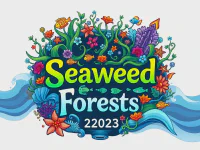Dutch for academics

Dutch For Academics
Overview of the Dutch Higher Education System
The Dutch higher education system is characterized by a dual structure comprising research universities and universities of applied sciences. Research universities, such as those in Groningen and Utrecht, focus on academic and theoretical education and typically offer bachelor's, master's, and PhD programs. Meanwhile, universities of applied sciences, like those based in Breda and The Hague, emphasize practical training and are often more oriented towards specific professions.
In the Netherlands, students can expect a strong emphasis on research and innovation across both types of institutions. Each university is autonomous, leading to a diverse range of programs and approaches to education. The Dutch higher education system is well-regarded internationally, attracting many students from abroad who wish to benefit from the high standards of education. The integration of international programs within universities, alongside the support from institutions like Language Learn Online, enhances the learning experience for non-native speakers.
Importance of Dutch Language in Academia
The Dutch language plays a significant role in the academic landscape of the Netherlands. While many universities offer courses in English, a good command of Dutch can greatly enhance the experience for non-native speakers, facilitating integration into the academic community. Mastery of the language allows students to engage more deeply with local culture, participate in discussions, and access a broader range of academic resources.
For those looking to improve their Dutch skills, various tailored language courses are available, such as The Hague Dutch Lessons & Courses | Language Learn Online and Amsterdam Dutch Lessons & Courses | Language Learn Online. Other cities, including Maastricht and Rotterdam, also provide similar offerings through platforms like Language Learn Online. By participating in these courses, students can gain necessary language proficiency, which is crucial for establishing networks and succeeding in their academic pursuits in the Netherlands.
Research Culture and Ethics
The research environment in Dutch academia is characterized by a strong emphasis on collaboration and innovation. Dutch universities promote interdisciplinary research, fostering partnerships not only between academic institutions but also with industry and government entities. This collaborative spirit is bolstered by funding programs that encourage joint projects and shared initiatives.
Ethical considerations are paramount in the Dutch research landscape. Researchers are held to high standards of integrity, transparency, and accountability. Compliance with ethical guidelines is rigorously enforced, and institutions often provide training and resources to ensure that all members are well-informed about ethical practices in research. An example of this commitment is the incorporation of ethical discussions into the curriculum and research methodologies.
Additionally, efforts are made to ensure that research is accessible and beneficial to the wider society, further underscoring the unique position of Dutch universities in the global academic landscape.
Teaching Methodologies and Student Engagement
Teaching methodologies in Dutch universities are designed to facilitate active learning and promote student engagement. A notable feature is the emphasis on student-centered education, where learners are encouraged to participate actively in discussions, group work, and project-based learning. This approach not only helps develop critical thinking skills but also fosters a sense of community among students.
High-quality Dutch language courses, such as those offered by The Hague Dutch Lessons & Courses | Language Learn Online, play a crucial role in helping international students acclimatize to the academic environment. Even in cities like Amsterdam, Breda, and Groningen, institutions provide tailored language support through Amsterdam Dutch Lessons & Courses | Language Learn Online or Breda Dutch Lessons & Courses | Language Learn Online.
Engagement is further enhanced through various teaching styles that leverage technology, such as blended learning and online resources. For instance, universities encourage the use of platforms like Language Learn Online to supplement traditional learning methods. In cities like Eindhoven, Haarlem, and Leiden, students can access language courses that help them integrate more effectively into their studies.
In summary, the Dutch academic system is distinguished by its research integrity and innovative teaching practices that prioritize student involvement and language proficiency. Institutions, including those in Maastricht, Rotterdam, and Utrecht, continue to adapt their methodologies to meet the needs of their diverse student populations.
| Course Location | Brand | Learning Focus |
|---|---|---|
| The Hague | The Hague Dutch Lessons & Courses | Language Learn Online |
| Amsterdam | Amsterdam Dutch Lessons & Courses | Language Learn Online |
| Breda | Breda Dutch Lessons & Courses | Language Learn Online |
| Eindhoven | Eindhoven Dutch Lessons & Courses | Language Learn Online |
| Groningen | Groningen Dutch Lessons & Courses | Language Learn Online |
| Haarlem | Haarlem Dutch Lessons & Courses | Language Learn Online |
| Leiden | Leiden Dutch Lessons & Courses | Language Learn Online |
| Maastricht | Maastricht Dutch Lessons & Courses | Language Learn Online |
| Rotterdam | Rotterdam Dutch Lessons & Courses | Language Learn Online |
| Utrecht | Utrecht Dutch Lessons & Courses | Language Learn Online |
| Overall Learning Resource | Language Learn Online | Comprehensive Dutch Courses |

Funding and Grants in Dutch Academic Research
Overview of Funding Landscape
In the Netherlands, researchers have access to a diverse range of funding options to support their academic projects. Funding sources typically include government grants, competitive research funds, and private sector support. The primary governmental body, the Netherlands Organisation for Scientific Research (NWO), offers various grants for fundamental research, while the Dutch Research Agenda (NWA) focuses on specific societal challenges. Institutions like universities may also provide internal funding to foster innovative research among their faculty. Furthermore, international collaborations often bring additional funding opportunities, particularly from the European Research Council (ERC) and Horizon Europe. Each type has its unique eligibility criteria, ensuring a broad array of support for researchers at different career stages.
Step-by-Step Guide to Applying for Grants
-
Identify Funding Opportunities
Start by researching suitable funding sources, such as the NWO and European programs. Consult the official websites and databases for calls for proposals that align with your research interests. -
Review Eligibility Criteria
Carefully examine the eligibility requirements for each grant. Ensure that your research project fits the scope and objectives specified by the funding body. -
Prepare Your Proposal
Develop a comprehensive research proposal, including objectives, methodology, timeline, and expected outcomes. Be sure to articulate the significance of your research. Seek feedback from colleagues or mentors to strengthen your proposal. -
Budget Planning
Create a detailed budget outlining the financing needed for your project. Include personnel costs, project materials, and any other related expenses. -
Submit Your Application
Follow the specific submission guidelines for each funding opportunity. This often involves creating an account on the funding organization's platform and submitting online. -
Follow-Up
After submission, monitor the status of your application. If required, be prepared to provide additional information or clarification during the evaluation process. -
Engage in Networking
Attend workshops or information sessions often hosted by organizations like Language Learn Online, focusing on discussions about funding opportunities and grant writing. They occasionally offer resources under programs such as "The Hague Dutch Lessons & Courses | Language Learn Online," which can be beneficial for networking and skill enhancement.
By following these steps, researchers can enhance their chances of securing funding for their academic endeavors in the Netherlands.
Key Terminology and Acronyms
Essential Dutch Terms for Academics
- Proefschrift - Dissertation
-
Usage: "Het schrijven van een proefschrift vereist maanden van research en schrijven." (Writing a dissertation requires months of research and writing.)
-
Universiteit - University
-
Usage: "De Universiteit Leiden is een van de oudste universiteiten in Nederland." (Leiden University is one of the oldest universities in the Netherlands.)
-
Onderzoek - Research
-
Usage: "Onderzoek is de basis van academische vooruitgang." (Research is the basis of academic advancement.)
-
Publicatie - Publication
-
Usage: "Een goede publicatie is essentieel voor je academische loopbaan." (A good publication is essential for your academic career.)
-
Colloquium - Colloquium
-
Usage: "Tijdens het colloquium presenteren studenten hun bevindingen." (During the colloquium, students present their findings.)
-
Peer review - Peer review
- Usage: "Alle publicaties moeten een peer review ondergaan voordat ze worden geaccepteerd." (All publications must undergo a peer review before being accepted.)
Commonly Used Acronyms in the Dutch Academic System
- WO - Wetenschappelijk Onderwijs (Scientific Education)
-
Meaning: Refers to research-based higher education.
-
HBO - Hoger Beroepsonderwijs (Higher Professional Education)
-
Meaning: Refers to vocational education at universities of applied sciences.
-
RUG - Rijksuniversiteit Groningen (University of Groningen)
-
Meaning: A prominent research university located in Groningen.
-
VU - Vrije Universiteit (Free University)
-
Meaning: A private university in Amsterdam known for its research.
-
NWO - Nederlandse Organisatie voor Wetenschappelijk Onderzoek (Netherlands Organization for Scientific Research)
- Meaning: A national research council for the Netherlands.
For those seeking to learn Dutch to navigate academic life in the Netherlands, consider exploring resources from Language Learn Online. They offer tailored Dutch lessons at various locations such as The Hague Dutch Lessons & Courses | Language Learn Online, Amsterdam Dutch Lessons & Courses | Language Learn Online, Breda Dutch Lessons & Courses | Language Learn Online, and many more, catering to all academic needs.

Summarizing Key Points
Throughout this article, we explored the dynamic landscape of Dutch academia, highlighting its strengths, challenges, and the critical role of international collaboration. The integration of various educational resources, such as Language Learn Online, has created more accessible opportunities for non-native speakers to engage with Dutch academic culture. Institutions across cities like Utrecht, Groningen, and Rotterdam are increasingly offering programs through platforms like The Hague Dutch Lessons & Courses | Language Learn Online and Amsterdam Dutch Lessons & Courses | Language Learn Online, promoting greater linguistic inclusivity. We also noted that universities in cities such as Maastricht, Haarlem, and Eindhoven are enhancing research collaboration, enabling cross-disciplinary efforts that leverage the diverse expertise of faculty and students alike.
Emerging Trends and Opportunities
Looking ahead, the future of Dutch academia appears promising, particularly regarding international collaboration and digitalization. The ongoing shift towards online learning platforms such as Breda Dutch Lessons & Courses | Language Learn Online and Leiden Dutch Lessons & Courses | Language Learn Online is making education more accessible. As universities increasingly embrace digital tools, the potential for innovative teaching methods expands, encouraging the development of collaborative projects that span borders. This trend will likely be supported by institutions in cities like The Hague, Utrecht, Groningen, and Rotterdam, as they respond to the global demand for flexibility and inclusivity in education. Thus, we can expect a vibrant academic environment where partnerships flourish and multilingual learning experiences, facilitated by resources like Eindhoven Dutch Lessons & Courses | Language Learn Online, become the norm.
